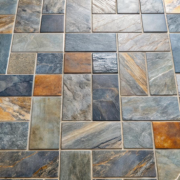The winter months bring cold temperatures and often wet weather, which can lead to moisture problems in your basement. As the temperature drops, snow and ice can build up outside your home, leading to leaking or flooding inside due to water seepage.
This is why it’s essential that you winterproof your basement before the chill of winter begins. Understanding why your basement leaks in the winter and taking necessary steps to prevent further damage will help ensure a dry and damage-free living space during these colder months.
1. Poor Roof Maintenance: One of the most common reasons why your basement leaks in winter are due to poor roof maintenance. If you fail to inspect and repair your roof before the cold weather sets in, it can lead to cracks or holes that allow melting snow and ice to seep into your basement. To prevent this from happening, inspect your roof for any damage before winter and fix any problems as soon as possible.
2. Faulty Gutters: Improperly installed gutters will not provide proper drainage for melted snow and ice outside of your home, which can cause water buildup around the foundation walls leading to leakage in your basement. Make sure that all gutters are securely fastened and debris-free to do their job effectively.
3. Clogged Foundation Vents: Your basement may have installed foundation vents designed to help keep air circulating and moisture levels low. If these vents become clogged with dust or debris, they won’t be able to properly ventilate, causing a buildup of moisture in the basement and leading to water leakage.
4. Openings in the Wall: Cracks or openings around your foundation can provide an easy pathway for melting snow and ice into your basement, so keeping an eye out for any signs of damage is key. Ensure all cracks are filled or caulked before winter sets in, and regularly inspect throughout the season for any new damage that may have occurred.
5. Cracked Foundation: A crack in your foundation can also cause leaks in the winter due to melting snow and ice seeping through and making its way down into the basement. Inspect your foundation regularly for any cracks or damage, and seek professional help if you suspect this may be an issue.
6. Poorly Waterproofed Walls: Another common cause of leakage during the winter is due to walls that are poorly waterproofed or insulated. Investing in a good quality waterproofing membrane or sealant before winter arrives can prevent moisture from making its way through and into your basement, thereby avoiding any potential water damage.
7. Expansive Soils: Soil high in clay or other minerals can cause problems as it shifts and swells due to temperature changes, exerting pressure on your foundation walls. This can create cracks which can then lead to water leaking into the basement. To prevent this from happening, ensure that there are no areas of excessive soil buildup around the foundation and that it is properly graded away from the house.
8. Frozen Pipes: Cold temperatures can cause pipes to freeze, leading to potential burst pipes or flooding when they thaw out again. Make sure all exposed pipes are insulated thoroughly before winter sets in, and if you suspect that there may be a leak somewhere, contact a plumber immediately for repair.
9. Improper Drainage: Poorly installed or inadequate drainage systems can cause water to build up around your foundation walls, leading to leaks in the winter. Make sure that all drains are regularly inspected and maintained to prevent any potential issues from arising.
10. Plumbing Leaks: A leak in a plumbing pipe inside your home can lead to water seeping into your basement, causing damage and leakage over time. Inspect your plumbing regularly for any signs of leaking or wear and tear, and have it fixed as soon as possible should you encounter any problems.
11. Improperly Installed Windows: Poorly installed windows can cause leakage in the winter months due to improper insulation. Be sure to inspect all of your windows regularly, and if there are any signs of wear or damage, have them fixed as soon as possible.
12. Overflowing Gutters: During the winter months, gutters can become clogged with snow and ice, leading to water overflowing and making its way down into your basement. To prevent this from happening, ensure all gutters are regularly cleared of debris and properly secured to provide maximum protection against overflows.
13. Waterproofing Paint: Applying good quality waterproofing paint to your basement walls can help prevent water from entering and creating potential leaks. Check the manufacturer’s directions carefully before applying it, as some paints are designed for interior use only.
Following these simple tips, you can ensure your basement is well protected against any winter weather-related damage or leakage this season. Investing in proper insulation and drainage systems, regularly inspecting vulnerable areas like windows and plumbing, and applying waterproof paint to your walls can make all the difference in keeping moisture out of your basement throughout the coldest months of the year.













Comments